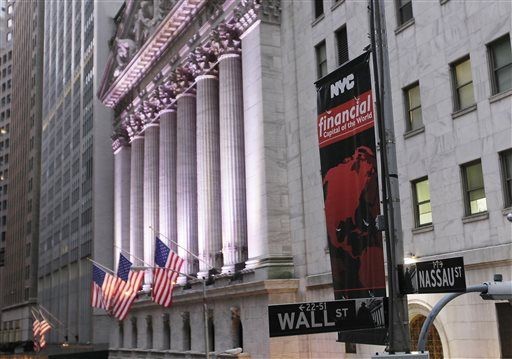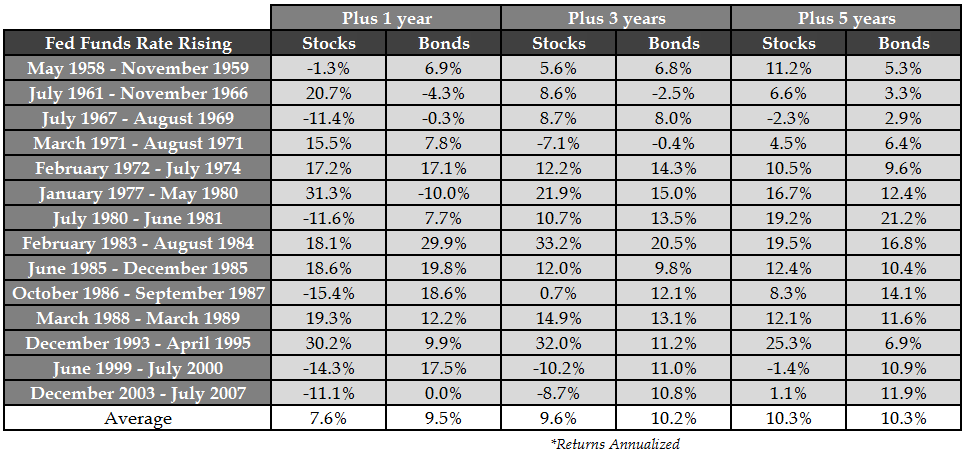Stock Market Forecast The Gut Feeling Challenge
Post on: 7 Июнь, 2015 No Comment

Like any financial decision, trading stocks can be a psychologically draining process and the more money there is at stake, the more difficult it is to stomach. Paradoxically, the more knowledgeable a person is, the more difficult it is to pull the trigger, because there are too many factors to consider. This financial angst has led many to accept that it is easier to manage their savings knowing less, and to instead rely mainly on their luck and instincts. Others avoid these difficult decisions by outsourcing them to professionals for hefty fees.
Most people who actively follow the stock market delude themselves into thinking that they are savvier than everyone else and believe that they have some unique insight that will lead them to outperform the S&P. However, data shows that investors are not rational and often make investment decisions out of overconfidence and sophomoric logic. This irrational behavior leads many unsophisticated investors to underperform the market. In his presentation at Tel Aviv University, Dr. Lipa Roitman discussed the psychology of trading and hysteria of investors, explaining how many educated people buy into hyped-up bubbles and sell during cyclical corrections out of panic. Dr. Roitman sums up this phenomenon with a quote by H.L. Mencken: For every complex problem there is an answer that is clear, simple and wrong. Investors may think that they can corner the stock market, but more often than not they oversimplify the data and fail to recognize the full extent of the market’s complexity.
Index Investing Outperforms Individual Investors
A recent survey at Tel Aviv University conducted by the Israeli startup company, I Know First. corroborates these assertions; the average return of the active investors who participated in the study was -8.67% from February 5th to May 5th while the S&P 500 increased by 7.91%. Many of the participants in this study invested in companies that they were familiar with such as Apple AAPL and McDonald’s MCD while others chose more complicated equities such as the VIX volatility index (VVX), which is especially difficult to predict. These investors did necessarily buy stocks for logical reasons, but rather attributed their investments to their gut instincts and the advice of so-called gurus. Dr. Roitman explains that these gut instincts often create bubbles and these so-called gurus don’t necessarily have the investors’ interests at heart. In fact recently Jim Cramer, host of the CNBC show Mad Money was accused of recommending stocks that he himself was selling.
Index Investing Outperforms Hedge Funds
Others who prefer to passively manage their money believe that their investment bankers, hedge fund managers, and mutual fund managers are more knowledgeable than the average investor because of their experience and expertise, and are willing to pay a premium for their insight. However, hedge funds charge exorbitant fees for their services and consequentially have on average underperformed the market ; according to Bloomberg Businessweek only 5% of hedge funds beat the S&P index with over 12% losing money over the same period. Professor Wermers of the University of Maryland argues that the chances of finding one of these few successful funds is next to zero and that it is very probable that those funds that do outperform the market do so by luck alone. Even funds that perform exceptionally well one year are far from likely to do as well the next; this is best evidenced by John Paulson’s funds, which have gone down tremendously after his huge gains during the financial crisis.
Index Investing Outperforms Mutual Funds
New York Times columnist, Mark Hulbert, estimates that the average expenses charged by managed funds and hedge funds are 3.5% and 9% respectively; in order to break even with index funds managed funds would have to earn 4.3% and hedge funds 10% more. According to Barron’s. the average Mutual Fund grew 2.72%, from March 7th to June 6th, while the S&P grew 5.33%. Though mutual funds charge less than hedge funds in management fees, they still charge an estimated 0.84% to 3.17% in trading costs on top of their significant upfront fees. Passively managed funds simply collect fees to create diversified portfolios, a task that anyone with the proper tools can do by himself.
Investing by Algorithm
Now let’s compare the Tel Aviv University survey results with the algorithms. The average return of the active investors who participated in the study was -8.67% from February 5th to May 5th. How did the algorithms fare at the same time period?

I Know First’s Top 10 stock market forecasts yielded a 10.93% increase from February 5th to May 5th (the same time period as the Tel Aviv University study), a period the S&P 500 SPY increased by only 7.91%. Even though three of the stock predictions were incorrect, the diversification allowed for the portfolio to increase regardless. The biggest winner was AMIC which rose 61%. The biggest loser, ALU decreased by 21.3%, but has begun to rise significantly after May 5th in accordance to the medium-term and long-term forecasts.
Admittedly the small sample size of the TAU survey, both in the number of participants, and the time span does not give much statistical validity to this comparison. However, that is not the point. It is only an example of how impartial algorithms and a systematic approach can give the investor an advantage over the gut feeling approach.
Conclusion
Modern Portfolio Theory argues that diversifying can drastically decrease risk, however, investing in more than 20 equities has negligible effects. If one doesn’t want to solely own index funds or wants to invest in individual stocks while mitigating his risk, ideally he should buy about 20 non-correlated stocks without the help of an active manager or so-called gurus — this way he’ll avoid fees and misdirection. Alternatively, one can use an impartial algorithm. such as that of I Know First. Such objective algorithms help eliminate irrational trading.
Business relationship disclosure: I Know First Research is the analytic branch of I Know First, a financial startup company that specializes in quantitatively predicting the stock market. This article was written by Ethan Fried (Harvard College ’16) one of our interns. We did not receive compensation for this article (other than from Seeking Alpha), and we have no business relationship with any company whose stock is mentioned in this article.
Disclosure: I have no positions in any stocks mentioned, and no plans to initiate any positions within the next 72 hours. I wrote this article myself, and it expresses my own opinions. I am not receiving compensation for it (other than from Seeking Alpha). I have no business relationship with any company whose stock is mentioned in this article.














